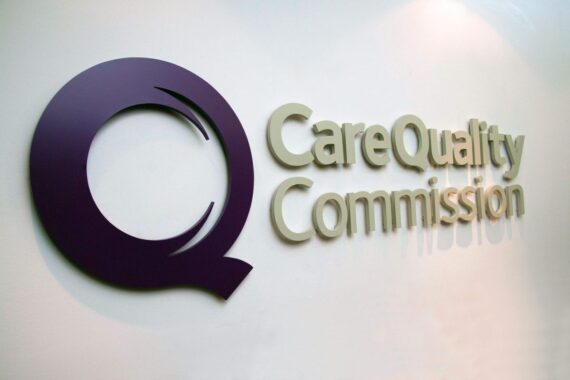GP leaders attending the England LMCs conference in London today have voted against all practices declaring themselves to the CQC as ‘requires improvement’.
The motion, which aimed to highlight the unsafe levels of care caused by the lack of doctors, would have become official policy for the BMA’s GP Committee if the vote had been passed.
Proposed by Kensington and Chelsea LMC, the motion said that general practice in England is ‘unsafe due to a shortage of doctors and a lack of investment’, and that this problem should be ‘owned by Government’.
It called for practices to be encouraged to ‘declare themselves to CQC as “requiring improvement”, as they are unable to offer safe and effective care due to widespread system failings outside of primary care’.
This part of the motion lost with 84 LMC leaders voting for and 156 voting against, with 26 abstaining.
But all other parts of the motion, including calls for an ‘effective mechanism’ for LMCs to escalate issues that impact patient safety and the introduction of a ‘workload sensitive contract’ without further delay, were passed.
Proposing the motion, Dr Lisa Harrod-Rothwell from Kensington, Chelsea and Westminster LMC said: ’12-hour days without breaks of constant complex time-pressured decision-making is now our norm.
‘80% of GPs feel unable to provide safe patient care, citing workloads and lack of time. We need many more GPs, we have made repeated warnings.’
She added: ‘We are still held to a standard of care that we cannot possibly deliver and scapegoated by those who set us up to fail.’
And she said that appointment league tables – published for the first time today – are ‘disgraceful’.
But BMA GP Committee for England deputy chair Dr Kieran Sharrock warned that practices declaring themselves ‘requires improvement’ is ‘a very risky thing to do, especially in the environment where CQC is so punitive and not supportive’.
He added: ‘Maybe if we did this, it would actually change that and maybe it would make CQC less punitive, but let’s see’.
Speaking against the call for practices to declare themselves as ‘requires improvement’ to the CQC, Dr Mark Alban of Cumbria LMC said: ‘Getting all GP practices to do this at once would be of course impossible and you risk creating tremendous problems and difficulties for our staff.’
Also speaking against, Dr Will Dougal of Hampshire and Isle of Wight LMC warned delegates to be ‘mindful of mass hysteria’.
He said: ‘Our battle here is with the Government and not with patients. If you’re taking your frail relative and there’s a big sign at the front of your practice saying “requires improvement”, I think that damages confidence.’
The call for action on CQC ratings followed the regulator’s own ‘state of care’ report, which said that the health and care system is ‘gridlocked’ and ‘unable to operate’, with staff struggling to provide good safe care as a result.
The CQC’s report also said that worsening access to primary care was leading to record drops in patient satisfaction and ‘exacerbating pressure’ on urgent and emergency services.
Meanwhile, an alert system for reporting pressures in general practice, with a national heatmap to show the worst affected areas, will be rolled out across England by spring next year, led by LMCs.
The conference will also debate cutting core hours to 9-5, as the current requirements discriminate against GPs who want to have families and, as a result of the ‘still patriarchal society’, against female GPs especially.
Motion in full
AGENDA COMMITTEE TO BE PROPOSED BY KENSINGTON AND CHELSEA: That conference believes general practice in England is unsafe due to a shortage of doctors and a lack of investment; that this problem must be owned by Government, and:
(i) believes that focusing on patient safety is more appropriate than trying to meet high patient demand and therefore calls for GPC England to use “safe capacity” and avoid “access” in communications and negotiations PASSED
(ii) deems the scapegoating, moral injury and lack of psychological safety faced by GPs, in the context of whole NHS system failure, to be entirely unacceptable PASSED
(iii) calls for an effective mechanism for LMCs to escalate issues that impact on patient safety in general practice that are outside the gift of practices to address and have failed to be addressed locally PASSED
(iv) believes it is time that a workload sensitive contract for GPs was introduced without further delay which includes a proactive system of monitoring and wellbeing safeguards PASSED
(v) believes all practices should declare themselves to CQC as ‘requiring improvement,’ as they are unable to offer safe and effective care due to widespread system failings outside of primary care. LOST

















